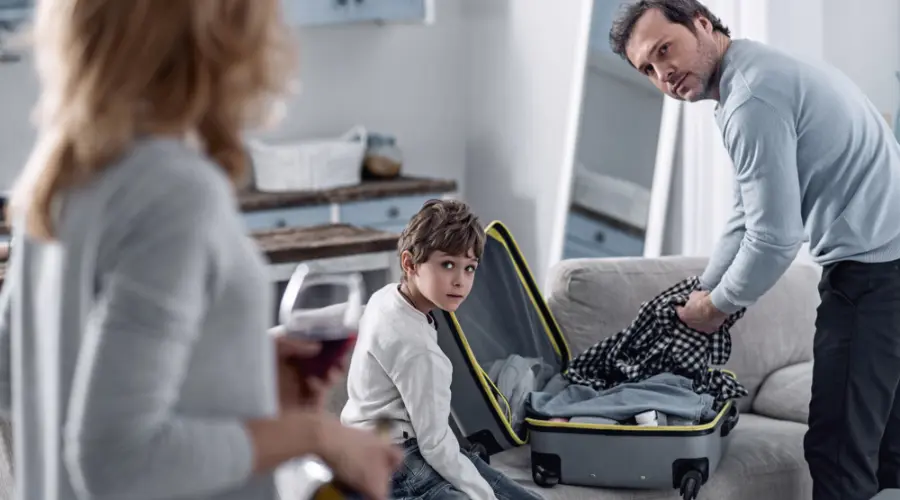Find Recovery in Tucson and Get a Foundation at Catalina
Not everyone has a safe, supportive, and drug-free environment to stay in while they recover from addiction. At an effective sober living Tucson setting, you’ll find an environment that supports residents in overcoming dependency on drugs or alcohol.
You may already know that sober living can be used after a residential program, following incarceration, or as part of an outpatient treatment plan and the social support and community at a reputable sober living home can help you recover.
For the highest chance of long-term sobriety, however, foundational work at a treatment center like Catalina Behavioral Health can set you up for success. You’ll learn about your relationship with drugs and alcohol and learn strategies to overcome it before being admitted to sober living in Tucson for continued support.
Keep reading for Tucson sober living options, as well as how to get a solid start on saying sober successfully with the help of our caring team at Catalina!
Get Proven Detox and Rehab Options at Catalina
A Sampling of Sober Living Facilities in Tucson
Less than 15 years ago, Arizona ranked among the top 10 states for substance abuse in the nation. Arizona communities are fighting back with better drug and alcohol addiction treatment programs and support after treatment.
Here are the locations of sober living homes in Tucson that are accessible to residents of Pima County:
- Galivan’s House LLC Men – 7155 E. 38th St., Tucson, AZ
- Galivan’s House LLC Women – 7155 E. 38th St., Tucson, AZ
- Paxton Sober House Men – 57299 West Tucson Estates Parkway, Tucson AZ
- Paxton Sober House Women – 57299 West Tucson Estates Parkway, Tucson AZ
- Exodus Community Recovery Services Inc. Men – 2732 North Country Club Road, Tucson, Arizona
- Exodus Community Recovery Services Inc. Women – 2732 North Country Club Road, Tucson, AZ
- In Balance Transitional Living – North Campbell Ave., Tucson, AZ
- Burning Tree West Sober Living – 1022 North Country Club Road, Tucson, AZ
- Camelback Recovery Ocotillo Ranch – 85629 Arizona Street, Tucson, AZ
- America’s Rehab Campuses – 6944 E. Tanque Verde Rd., Tucson, AZ
- Navarro Sober House – 1036 E. Adelaide Dr., Tucson, AZ
- Joshua Sober House – 3028 North Geronimo Avenue, Tucson, AZ
- Believe Recovery Services Genna’s – 6675 E. 22nd Street, Tucson, AZ
Certain sober living homes are for either men or women. This type of housing discourages relationships between residents
The Proven Benefits of Sober Living Homes

People stay at sober living houses for many reasons. They may be unable to go home because of a lost apartment or housing. They may not be capable of independent living yet.
Accountability
While staying at a sober living home, drugs and alcohol should not be easily available to help prevent relapse in early recovery. You’ll also be monitored by peers or supervisors at the facility. They offer support and help keep residents accountable.
Peer Support
Other beneficial elements of the sober living environment when seeking recovery in Tucson (or elsewhere) include peer support, stability, and a distraction-free environment. Sobriety, wellness, and the steps that it takes to achieve that are your focus while staying here, away from the stresses of day-to-day life.
Access to Resources
Residents also typically have access to resources that set them up for success. This might include everything from job training and life skills to community outreach. Sober living can help with finding employment and getting on a path that supports continued sobriety.
Some facilities also provide guidance and might even be able to help you relocate after completion of your treatment program.
Types of Sober Living Homes
There are several types of sober housing, making it easy for residents to choose services based on their needs.
- Peer-run housing (Level 1) – Peer-run facilities use democracy and house meetings, where expectations are addressed and residents are held accountable for behaviors. Drug screenings are common in this community.
- Monitored (Level 2) – At least one paid staff person like a house manager or senior resident is in charge provides guidance, offers support, and encourages participation in recovery programs.
- Supervised (Level 3) – Certified staff runs these facilities. They are more structured than Level 1 or 2 and may offer treatment programs.
- Clinical supervision (Level 4) – These facilities are administrative, with high levels of supervision. Clinical services and programs might be offered.
- Halfway houses – Halfway homes have high levels of structure and a focus on addiction counseling. You usually cannot stay in a halfway program indefinitely.
You should choose a facility based on affordability, quality of treatment provided, and whether it offers adequate support for recovery.
Who Can Stay at a Sober Living Home?

Sober living houses are for people trying to overcome drugs and alcohol who may have an unsupportive or unsafe living environment. They may be used as a transition for people leaving incarceration or a Tucson drug rehab program, or for individuals who are at risk of relapse.
Sober living provides stability, balance, and hope to people at risk of becoming homeless after treatment.
What Rules Have to Be Followed?
Even though specific rules and admission requirements vary depending on the facility, here are some common guidelines in sober housing:
- Avoid using drugs and alcohol. Some housing facilities require regular drug tests to ensure this rule is followed.
- Pay fees associated with housing. Grants, community resources, and insurance can also help pay for these fees.
- Attend school, go to work, or seek employment. It’s important to use your time in a sober program to prepare yourself for the next steps in life.
- Refrain from being violent or harming others in recovery. Even when tensions are high, remember that sober living is meant to be a safe place to recover.
- Complete chores or keep the house clean. It is common for members of the housing facility to be asked to contribute.
- Continue with treatment. This might include being enrolled in an outpatient treatment program or going to support groups regularly.
- Work closely to follow guidelines established by parole probation. For example, attending meetings, holding employment, and staying substance-free are common for federal and state probation.
Someone will go over the rules for the facility at one house meeting with you after admission. There is often a zero-tolerance policy for certain rules and you may be asked to leave the program if you break them.
Will My Insurance Cover Sober Housing in Tucson?

In some cases, insurance does offer coverage for sober living. Long-term drug and alcohol addiction treatment is most effective in preventing relapse. It is hard to stay sober if you are living on the streets or in a homeless shelter.
If you are unsure of the cost of sober living, reach out to Catalina. Our aftercare planning can help you find alternative forms of payment for sober living fees while at our rehab facility, such as grants from SAMHSA or scholarships offered locally.
Up To 100% of Rehab Costs Covered By Insurance
Lay the Foundation for Lasting Recovery at Catalina
Research shows that the programs offered and continued support after recovery positively affect alcohol and drug treatment outcomes. However, this doesn’t mean you have to stay in a residential facility long-term.
Many residents stay at inpatient treatment for a period of four weeks up to six months, depending on specific needs. While in rehab at Catalina, you’ll work in individual and group therapy while in rehab, building coping strategies, life skills, healthy habits, and a greater understanding of how to overcome the battle of addiction.
We also make the transition to your next step easier and can even help you find sober living facilities in the Tucson area when you graduate. Pick up the phone and learn more about how Catalina can help today!





